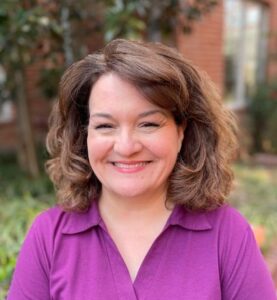Looking Beyond Disability—to Joy!
When our sons were diagnosed with autism, I knew life would change for my husband and me—but not in the ways most people imagine. Yes, there were challenges: sleepless nights, therapies, learning new ways to communicate, and adapting our world to theirs. But there were also moments of indescribable beauty—my older son’s first spontaneous “Love you, Mommy”; the way my younger son would find joy in taking apart an old calculator so he could figure out “where the numbers come from.” Their sister, who was four when my older son was born, and five when the younger one arrived, became her brothers’ first therapist by playing with them in whatever way they could understand.
Today, our daughter is a deeply compassionate behavioral therapist working with children who have autism. Our younger son has overcome the majority of his challenges, while his older brother, who communicates well but on the level of a 5-year-old, is under the guardianship of my husband and me. Caring for him today is easy. He sleeps through the night (usually) and can make himself a meal if he’s hungry (whether it’s nutritious or not is a different story).
But as I watch the cultural conversation around assisted suicide shift toward acquiescence, I am alarmed—not only as a member of a society that increasingly values human worth in terms of convenience, productivity, and a perceived “quality of life,” but as the mother of a child who doesn’t make the grade according to those measures. In recent years, countries such as Canada and the Netherlands have expanded so-called medical assistance in dying (MAID) to include people with chronic illnesses, mental health challenges, and even disabilities. Other countries, as well as some states in the U.S., have passed or are actively working to pass assisted suicide legislation.
News stories describe individuals who sought assisted suicide not because their conditions were terminal, but because they felt like a burden. The language used to justify these deaths—“compassion,” “autonomy,” “dignity”—is chillingly familiar. It sounds like care, but what it does is gloss over fear and despair.
I can’t help wondering: What message do we send to those facing pain or disabilities? And are people who can’t advocate for themselves at risk?
I believe they are.
When society labels certain lives as “not worth living,” that message reaches everyone who struggles daily with a disability, depression, or chronic pain. It says, “Your suffering is a reason to die, not a reason for us to love you more.” It says, “We will help you end your life rather than help you live it well.”
Another red line is crossed—and we accept it.
When we regard assisted suicide as a solution rather than a tragedy, we create a hierarchy of human value. The young and healthy are deemed “worth saving,” while the disabled, the elderly, and those in need of long-term care become candidates for “merciful release.” This is not compassion. It is abandonment dressed up in euphemism.
For parents like me, this debate is not theoretical. I have felt the pity that implies: “He will never have a normal life.” And yet, my son’s life is full—full of meaning, connection, and love. What he lacks in “normal,” he makes up for in authenticity and joy.
My son’s life reminds me that human dignity is not something earned through independence or intelligence. It is intrinsic. Every person—regardless of ability—has the same worth simply by being human. That truth should be the foundation of every law and every medical ethic.
Instead, we are seeing a dangerous drift. Advocates of assisted suicide insist it is about choice, but whose “choice” is it, really?
What we need is broader compassion—and support. We need policies that will expand respite care for families; make services more accessible; and offer counseling and community rather than perpetuate isolation.
And we need a culture that celebrates perseverance, not one that pathologizes it. When I look at my son, I see the face of resilience. I see what it means to live with courage and curiosity in a world that is not designed for you. I also see how vulnerable he and others like him are in a society that is forgetting how to look beyond disability. We must insist—again and again—that every life, no matter how complicated, is sacred and worth protecting.



 Laura Echevarria returned to National Right to Life and her role as the Director of Communications in June 2019. She originally served on the communications staff from 1994-2004 and as director of the organization's media outreach from 1997 to 2004. Laura lives with her husband and their three children, two of whom are on the autism spectrum.
Laura Echevarria returned to National Right to Life and her role as the Director of Communications in June 2019. She originally served on the communications staff from 1994-2004 and as director of the organization's media outreach from 1997 to 2004. Laura lives with her husband and their three children, two of whom are on the autism spectrum.






Pingback: Human Life Review Blog Post: Looking Beyond Disability—to Joy! - Laura Echevarria